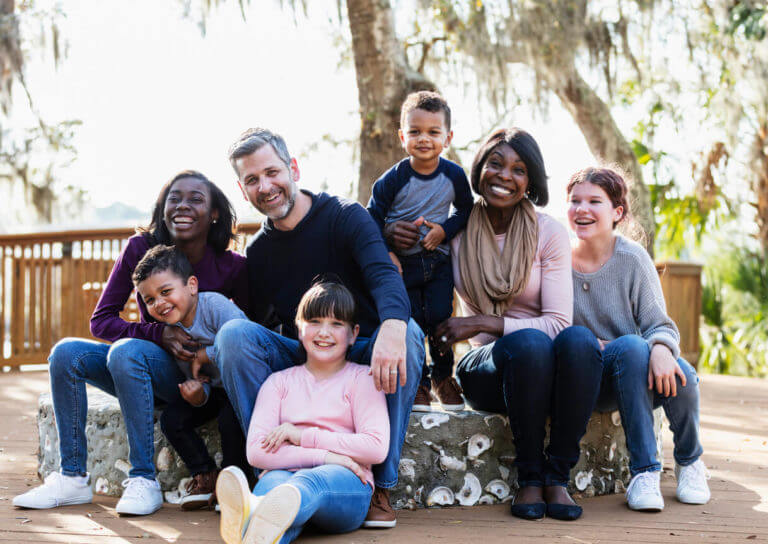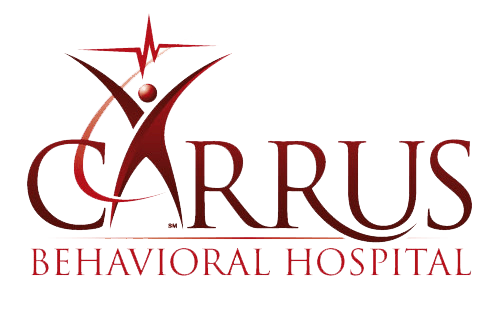
Blended families are full of love and potential, but navigating the unique dynamics can sometimes feel overwhelming. Stepparents may struggle to connect with their stepchildren, siblings might clash as they adjust to new family roles, and parents may feel pulled in multiple directions.
Here at Carrus Behavioral Hospital, we understand these challenges. Our compassionate therapists specialize in helping blended families build strong, supportive relationships. In this article, we will guide you in fostering open communication, navigating emotional hurdles, and creating a sense of belonging for everyone.
Understanding Blended Family Dynamics
Blended families are a beautiful tapestry woven from different threads of life experiences, personalities, and backgrounds. At the heart of these families is a desire for love, acceptance, and a sense of belonging for all members.
However, navigating the complexities of blended family life can sometimes feel challenging.
It is essential to recognize that each family member may be at a different stage in their emotional journey toward integration and acceptance.
The Role of Family Therapy in Building Strong Bonds
Family therapy serves as a form of support for blended families striving for unity and understanding. This therapeutic approach provides a safe and respectful space for every family member to express their feelings, fears, and aspirations openly.
Fostering Open Communication
One of the cornerstones of family therapy is encouraging open and honest communication.
It is crucial for each person to feel heard and understood. Through guided discussions, family members can learn effective communication skills, helping to reduce misunderstandings and build trust.
Resolving Conflicts with Compassion
Conflict is a natural part of any family dynamic, more so within blended families where individuals are still learning about each other.
Family therapy emphasizes resolving conflicts through empathy and mutual respect, ensuring every member feels valued and respected.
Strengthening Emotional Connections
Creating deep, emotional connections between stepparents, stepsiblings, and half-siblings is vital for the health of a blended family.
Family therapy sessions focus on activities and conversations that strengthen these bonds, celebrating each individual’s unique contribution to the family.
Navigating Transitions Together
Transitions can be particularly challenging, be it:
- Moving homes
- Changing schools
- Adjusting to new family roles
Family therapy assists families in managing these changes collaboratively, ensuring everyone feels supported throughout the process.
Finding the Best Family Therapist for Your Blended Family
Choosing the right family therapist is a crucial step in your blended family’s path to harmony and understanding. It is about finding a professional whose expertise, approach, and values align with your unique needs.
Here are thoughtful considerations to guide you in selecting the best therapist to support your family’s journey:
1. Seek Recommendations with Care
Begin by seeking suggestions from reliable healthcare providers, friends, or family members who have had positive experiences with family therapy.
Remember, the effectiveness of therapy is often influenced by the personal connection and trust built between the therapist and the family. Look for professionals experienced in addressing the specific challenges that blended families face.
2. Research Their Specializations
Family therapists have varying areas of expertise, including:
- Conflict resolution
- Communication skills
- Parenting
- Transitions within blended families
Research potential therapists to understand their specializations, ensuring they match your family’s needs.
A therapist with experience in blended family dynamics can offer tailored strategies that resonate with your unique situation.
3. Consider Their Approach and Philosophy
Therapy models vary widely, and understanding a therapist’s approach can help you determine if they are the right fit for your family.
Whether it is cognitive-behavioral therapy, narrative therapy, or another model, the key is finding someone whose methods align with your family’s values and goals.
Do not hesitate to ask potential therapists about their philosophy and how they structure their sessions to gauge compatibility.
4. Schedule a Consultation
Many therapists offer initial consultations, which can be an invaluable opportunity for your family to interact with them directly. This meeting allows you to:
- Assess how comfortable everyone feels with the therapist
- Ask questions about their experience with blended families
- Discuss your goals for therapy
It is essential that all family members feel respected, heard, and comfortable in this setting.
5. Evaluate Communication Style
Effective communication is the foundation of successful therapy. Pay attention to how the therapist communicates during your initial interactions.
You are looking for someone who:
- Listens attentively
- Explains concepts clearly
- Demonstrates empathy and respect
Their communication style should make you feel supported and understood.
6. Trust Your Instincts
Finally, trust your instincts. After meeting with a therapist, reflect on the interaction and listen to your gut feeling.
You want a therapist who instills confidence and optimism about the therapeutic process.
If something feels off, it is okay to continue your search. The right therapist will make you feel hopeful and empowered to tackle the challenges ahead.
Compassionate Therapy for Blended Families Near Me in Sherman, TX
If your family is navigating the complexities of blending lives and hearts, remember you are not alone. Professional guidance through family therapy can provide the tools and support necessary to foster a nurturing and harmonious family environment. Together, we can build a foundation of compassion, respect, and dedication to one another, ensuring that every family member feels cherished and valued.
You can put your trust in Carrus Behavioral Health Hospital if you are looking for compassionate therapy for families near you. You may reach our helpful staff at (903) 870-1222 so we can provide you with closer assistance.
We look forward to helping your blended family thrive.

